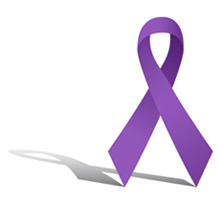Resources Library: Publications/Reports
Start a Search:
FACT Issue Brief—Older Adults and Family Violence
This FACT Issue Brief identifies forms of family violence and abuse faced by older adults and summarizes research on effective ways communities and households can identify and prevent further abuse. Promising strategies designed to protect the safety and security of the older adult population within the Commonwealth of Virginia are highlighted.
Family & Intimate Partner Homicide: A Ten-Year Review of Family and Intimate Partner Homicide in VA
This report is a special 10-year anniversary issue and presents ten-years worth of data from the Virginia Family and Intimate Partner Homicide Surveillance Program.
Published: October 2010
Data Included: 1999-2008
This report is a product of Virginia Department of Health's Office of the Chief Medical Examiner's Family & Intimate Partner Homicide Surveillance Project. For more information about this project, visit: http://www.vdh.state.va.us/medExam/familyintimatepartnerviolencehomicidesurveillance.htm
Family and Children’s Trust Fund of Virginia: New Reports and Blog
The Family and Children's Trust Fund of Virginia (FACT) has debuted a new blog to house news, research, trainings, and other information related to family violence in Virginia. The blog can be found at www.fact.virginia.gov/factblog
FACT recently migrated its annual report to a new online research and data portal. The portal and 2015 FACT Report can be found at their website here.
Family and Intimate Partner Homicide: 2011
The Office of the Cheif Medical Examiner released it's annual report from the Family and Intimate Partner Homicide Surveillance Project in April, 2013. The annual report is a descriptive analysis of the characteristics and circumstances surrounding family and intimate partner homicide in Virginia in 2011. This and other reports from the Family and Intimate Partner Homicide Surveillance Project can be found here.
Family and Intimate Partner Violence Fatality Review Protocol (3rd edition)

Team Protocol and Resource Manual (3rd Edition)
This Protocol and Resource Manual that supports the development of local and regional domestic violence fatality review teams in Virginia. The resources and materials included here provide directions on death review in the area of domestic violence homicides.
Published by: Virginia Department of Health, Office of the Chief Medical Examiner. December, 2009. 98 pages.

